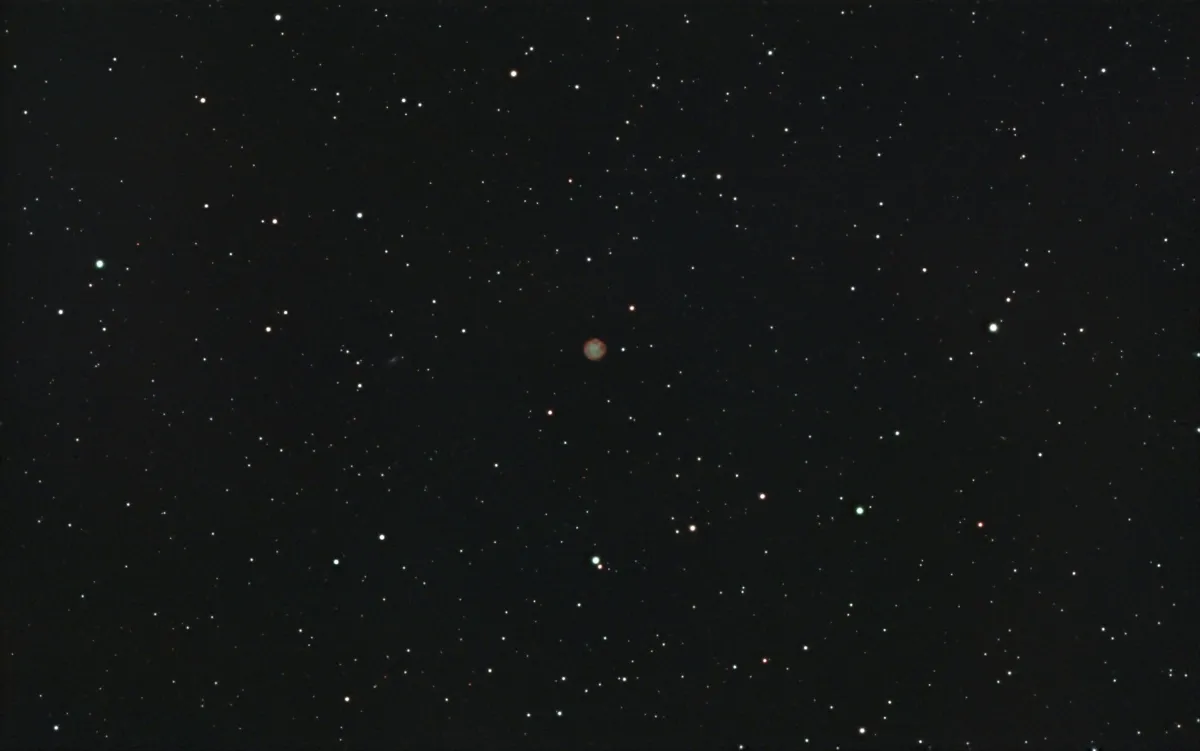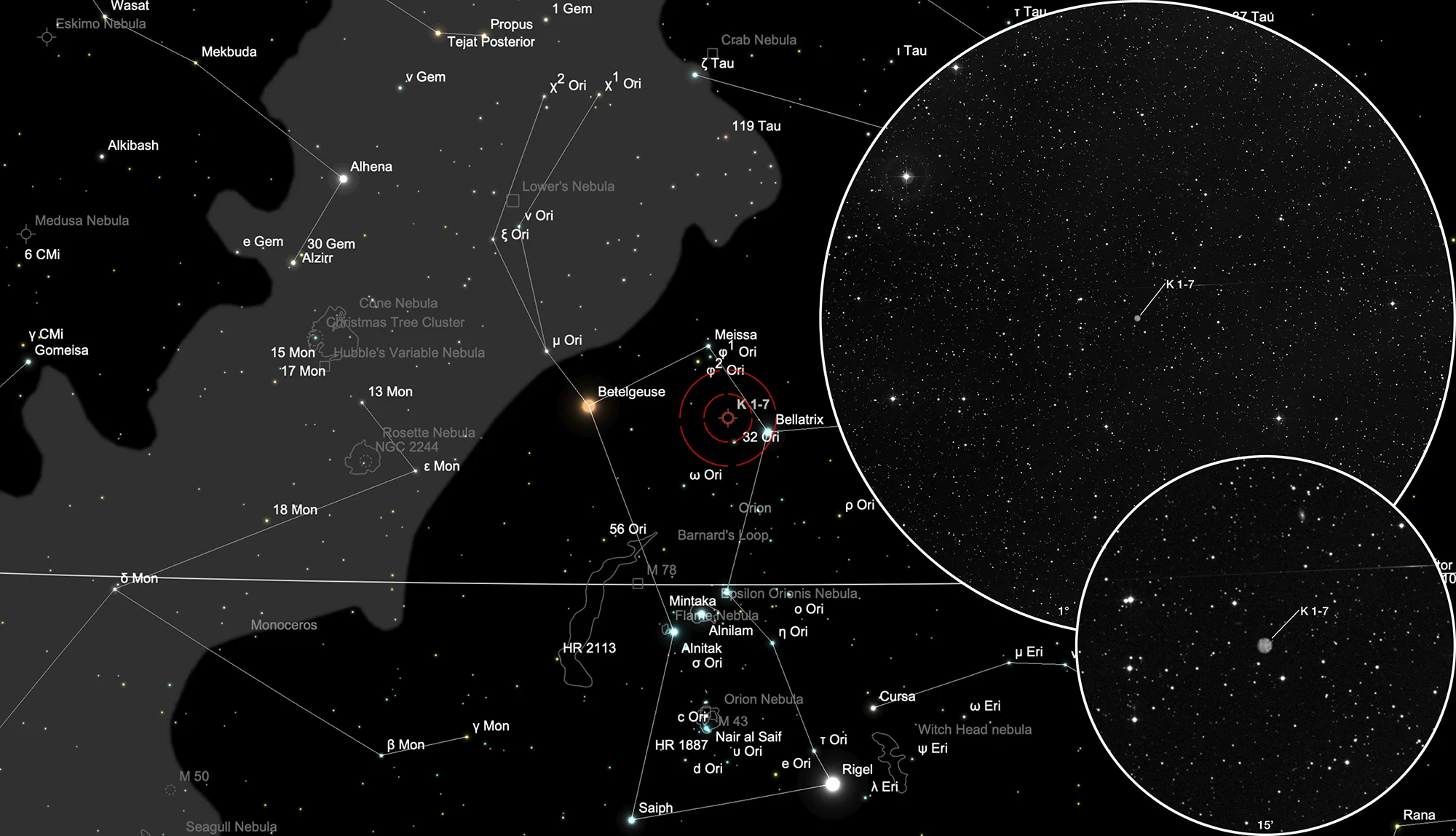Planetary Nebula Kohoutek 1-7 (Abell 10)

History
The planetary nebula K 1-7 was discovered in 1962 by the Czech astronomer Luboš Kohoutek on the photo plates of the «Palomar Observatory Sky Survey» (POSS). He wrote: «On the red print: black circular disk 34" x 36" without any details. On the blue print: dark circular disk 32" x 35" with the suggestion of a central star ~19.7m.» [436]
George Ogden Abell listed in 1966 this planetary as Abell 10 and noted: «Nebula appears as a disk with bright stripes.» [332]
The nebula was later included in the «Catalog of Galactic Planetary Nebulae» (CGPN) compiled by Luboš Perek and Luboš Kohoutek in 1967 and was given the designation PK 197-14.1. [146]
Physical Properties
Given distances vary from 3800 pc to 5000 pc. [145]
| Designations | PN G197.2-14.2: K 1- 7, PK 197-14.1, A 10, ARO 176 |
| Right Ascension (J2000.0) | 05h 31m 48s |
| Declination (J2000.0) | +06° 56' 09" |
| Dimensions | 34." (optical), 20." (radio) |
| Radial Velocity | +57.6 ± 3.5 km/s |
| C-Star Designations | AG82 46 |
| C-Star Magnitude | B: 20.2 |
| Discoverer | KOHOUTEK 1963 |
Finder Chart
The Planetary Nebula Kohoutek 1-7 is located in the constellation Orion The best time to observe is August to May, when it is highest at night.
Visual Observation
400 mm Aperture: Using averted vision the planetary nebula appears in the 13 mm Ethos as a dim disk. No further details or central star could be determined. Using O-III filter the sky background gets darker and the surrounding faint stars disappear. — 400 mm f/4.5 Taurus Dobsonian, Hasliberg, SQM 21.0, 3. 2. 2024, Bernd Nies
762 mm Aperture: The planetary nebula Abell 10 appears in the OIII filter as a delicate white disc or a perfectly round mini cotton ball. — 30" SlipStream-Dobson f/3.3, Hasliberg, 26. 12. 2024, SQM-L 21.17, Elena + Eduard von Bergen
